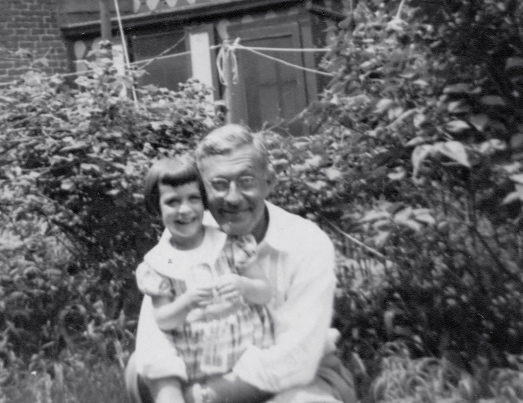A Lesson in Vulnerability

Photo: Daddeo and me, circa 1956, Chicago
I recently gave an interview to NPR for an upcoming podcast on family caregiving. When asked to recall an event connected with my dad’s dementia, what immediately surfaced was the chaotic day I sent him to his room for a time-out, then locked myself in the bathroom for an hour, and cried into a towel – for me, for our family, and for my father, most of all.
Despite being described in my book, The Dutiful Daughter’s Guide to Caregiving, in far more detail, hearing that story spoken aloud made my stomach twist. Would people think me insensitive to my father’s needs? Would they view the telling as disrespectful to his memory? What would they think about an author who writes about dementia and deigns to offer advice?
Lucky for me, I reached out to a good friend and, honking into a Kleenex, asked her to talk me down from the lofty perch I had placed myself. She responded with, “You offered a moment of true vulnerability to listeners and that is scary. Think how it makes others feel, though, to know they’re not alone.”
Her wise words reminded me of something I always tell participants during talks and workshops. It has to do with the profound responsibilities of caregivers, and how we so often expect ourselves to respond flawlessly to every challenge this experience throws at us, even when feeling exhausted and overwhelmed. Cripes – most of the time, we don’t even know what we need to know until it hits us upside the head.
So, here’s my advice whether you’re neck deep in the journey or processing it weeks, months or even years later, like me. Don’t be afraid to say, “I’m not perfect, but I did my best.” When it comes to caregiving, one of the hardest lessons to learn is that we’re only human.
Follow Up: Ultimately, my interview was not used in the NPR podcast, but there are still some very helpful suggestions to be found. Link is:
https://www.npr.org/2019/07/11/740715027/how-to-be-a-better-caregiver-when-a-loved-one-gets-sick
